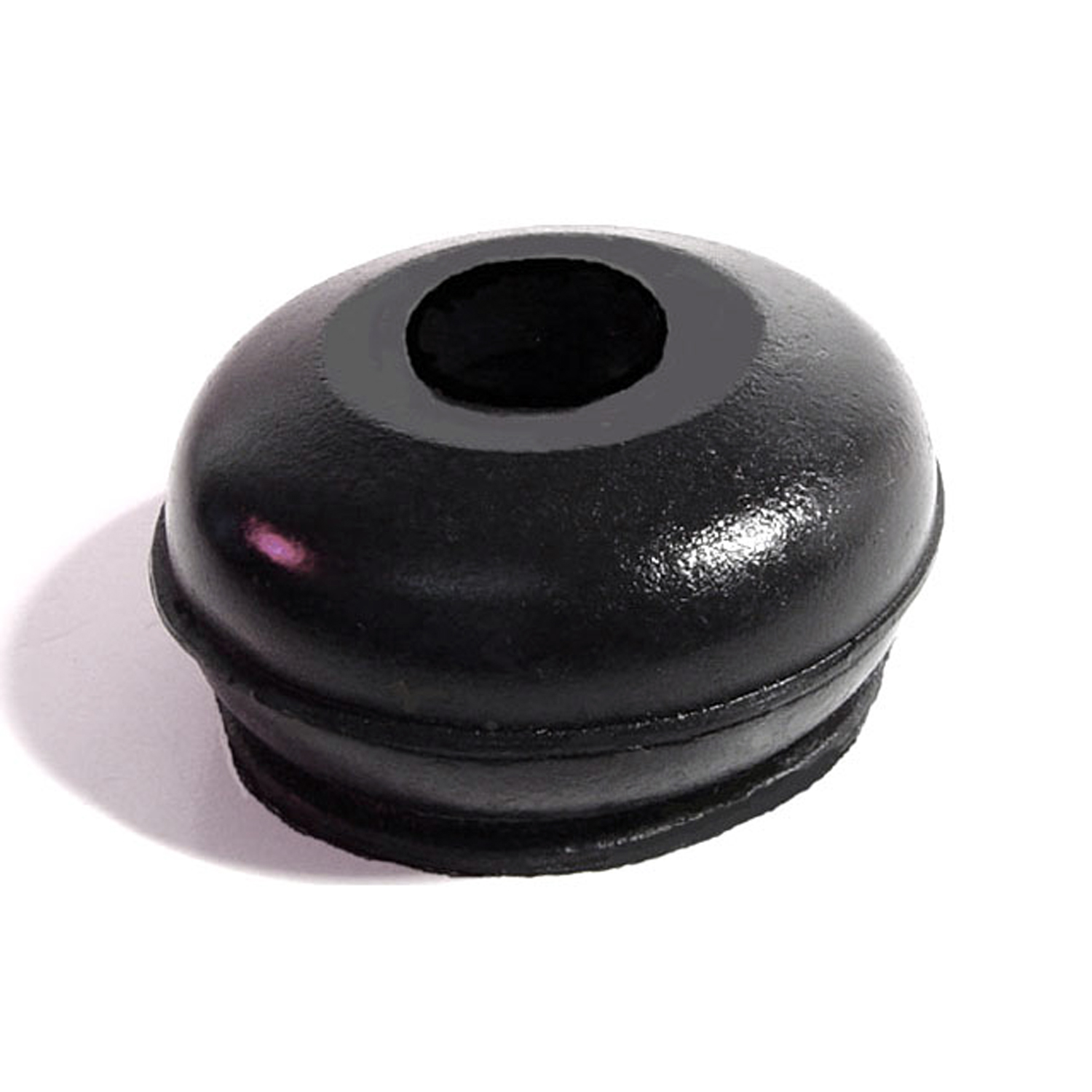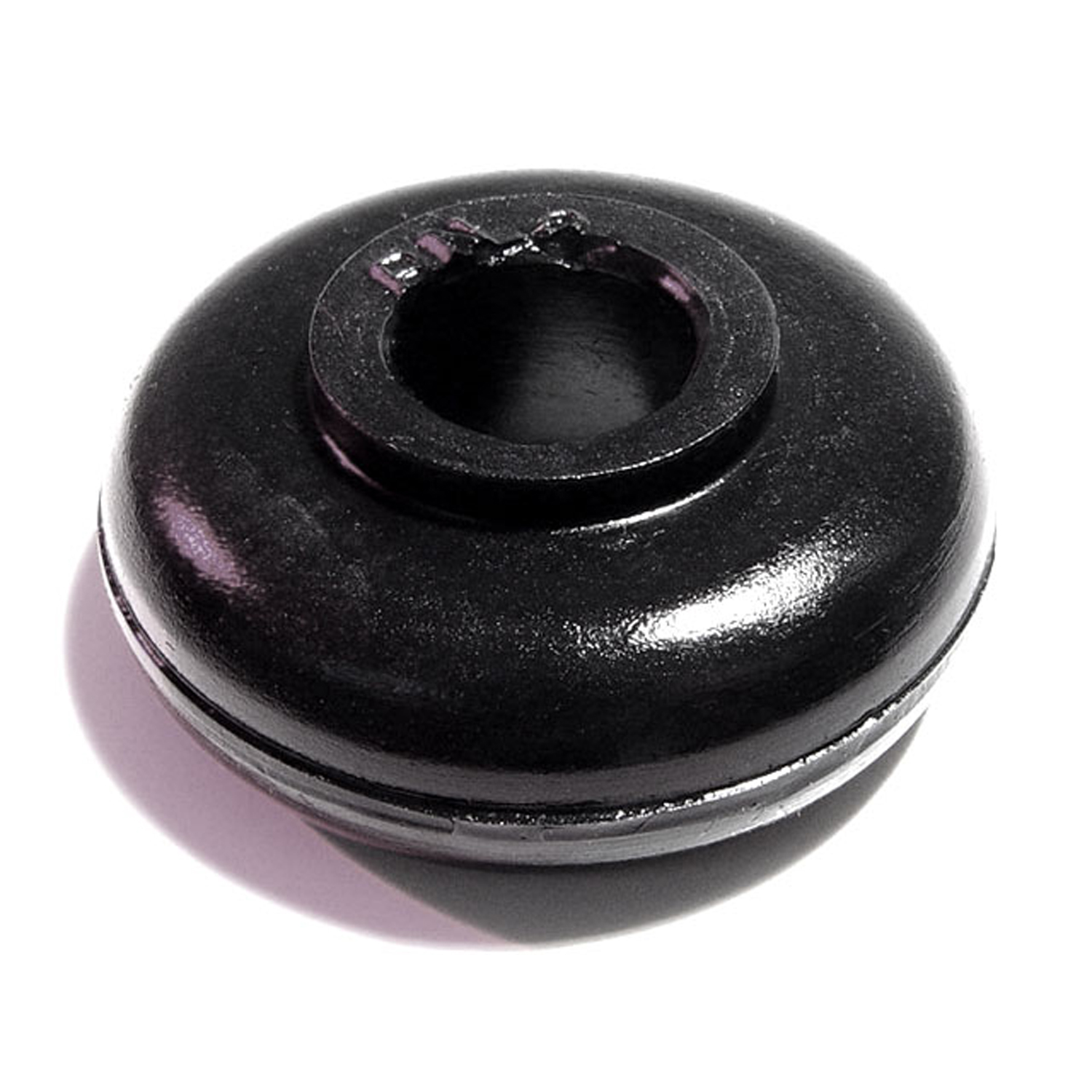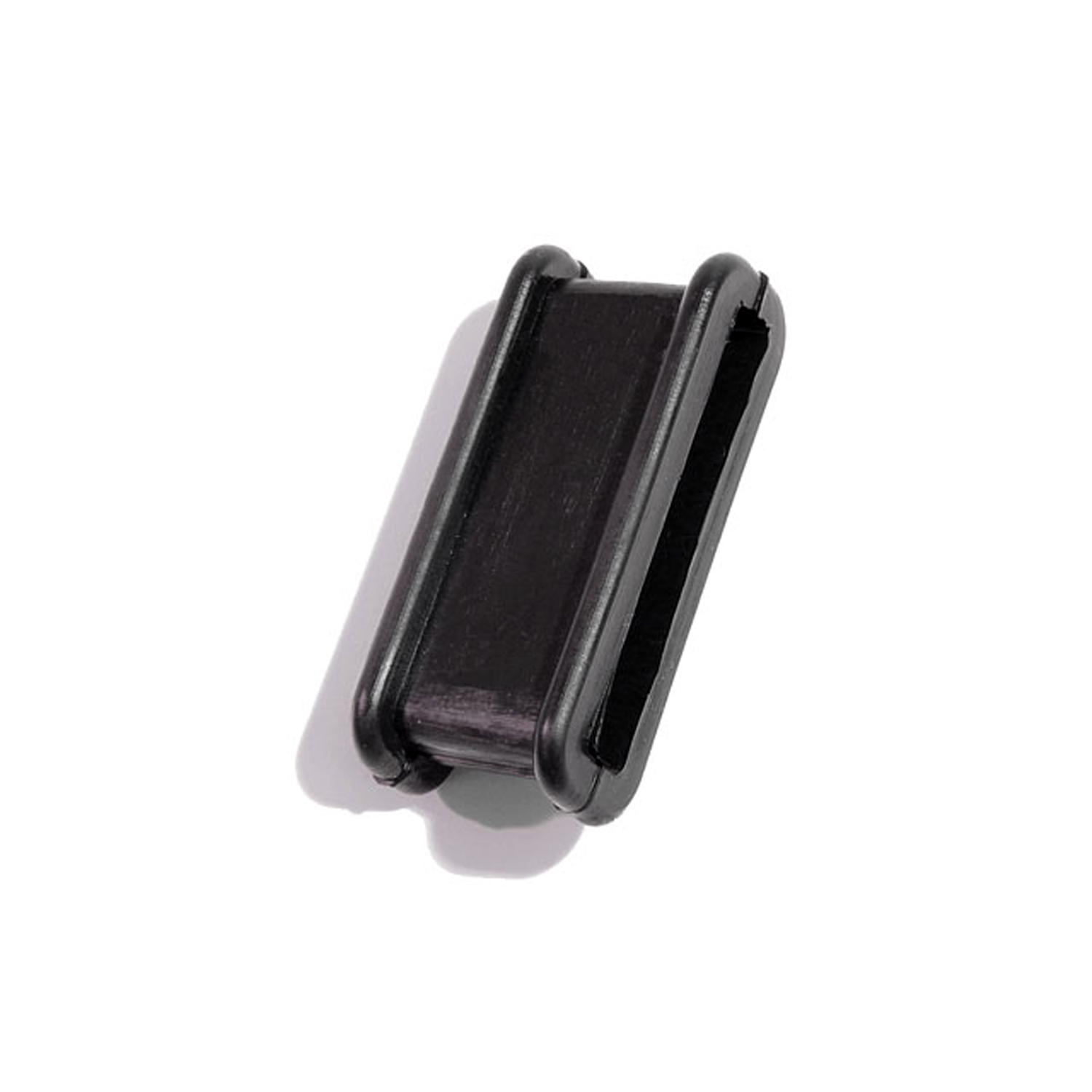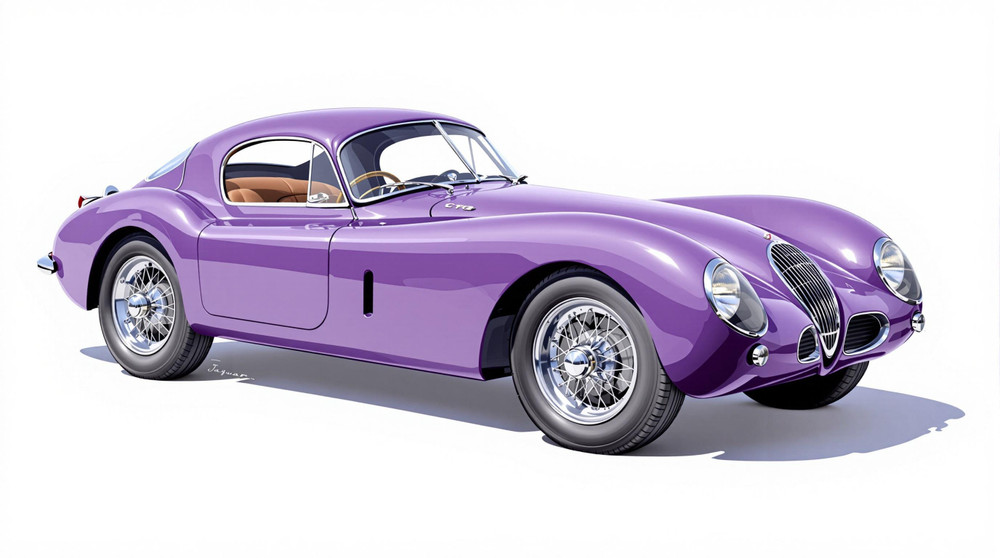Image of 1951 Jaguar C-Type, Note: These illustrations use artistic license and may differ from actual historical models.
Performance Metrics
Fundamental Metrics
Emotional Appeal
MMP Rating
| Engine Specifications | |
|---|---|
| Engine: | 3.4L DOHC Inline 6 |
| Displacement: | 3442 cc |
| Horsepower: | 200-210 HP |
| Torque: | 220 lb-ft |
| Compression Ratio: | 8.0:1 |
| Ignition System: | Twin Magneto |
| Cooling System: | Water-cooled |
| Performance Specifications | |
| 0-60 Time: | 8.0 seconds |
| 1/4 Mile Time: | 16.0 seconds |
| Top Speed: | 140 mph |
| Transmission and Drive | |
| Drive Type: | Rear Wheel Drive |
| Transmission Type: | 4-speed manual |
| Fuel and Efficiency | |
| Fuel System Type: | Triple SU carburetors |
| MPG: | 15-20 MPG (estimated) |
| Dimensions and Brakes | |
| Brakes: | Drum brakes |
| Wheelbase: | 96 inches |
| Weight: | 2100 lbs |
Note: Specifications for classic cars are given to the best of our ability, considering the limited and variant data available.
Unveiling the 1951 Jaguar C-Type: A Legend Reborn
The 1951 Jaguar C-Type is not just a car; it's a rolling sculpture that embodies speed, elegance, and innovation. Born from the loins of Jaguar Cars Ltd., this British sports racing car was a technological marvel of its time. The C-Type, where "C" stands for "Competition," was a purpose-built racer with its sights set on Le Mans glory. Its unique fact? It clinched the prestigious 24 Hours of Le Mans race in its debut year, a testament to its groundbreaking design and performance.
Design and Innovation: A Symphony of Style and Speed
The C-Type's exterior styling was a harmonious blend of form and function. Its fluid, aerodynamic lines were penned by Malcolm Sayer, an aircraft designer who applied his knowledge of aerodynamics to automotive design. The body was crafted from lightweight aluminum, draped over a tubular frame which was both rigid and light. Inside, the cockpit was spartan but purposeful, with leather bucket seats and minimalistic instrumentation that spoke to its racing pedigree. The materials used were high-quality yet functional, designed to withstand the rigors of endurance racing.
Technologically, the C-Type was ahead of its time, featuring disc brakes that gave it an edge over competitors still using drum brakes. This innovation proved crucial in endurance racing where consistent braking performance was key. Color options were limited but iconic; British Racing Green became synonymous with the C-Type's racing success. While there were no varying body styles, the factory-produced models were often tailored to specific races or customer requests.
Historical Significance: A Trailblazer on Track and Road
The C-Type's impact on automotive design cannot be overstated. It brought disc brake technology to the forefront, influencing future automotive designs far beyond Jaguar's own models. Its success on the track demonstrated the potential of aerodynamic vehicles and set new standards in sports car engineering. The C-Type's influence persists in modern sports cars that continue to chase the perfect balance between power and aerodynamic efficiency.
Performance and Handling: The Thrill of the Chase
Underneath its bonnet lay a 3.4-liter inline-six engine that propelled the C-Type to top speeds exceeding 140 mph—a remarkable feat for its era. Acceleration from 0-60 mph was achieved briskly for the time period, though exact figures vary based on different sources and conditions. On winding roads or during endurance races, the C-Type handled with poise and precision, thanks in part to its lightweight construction and advanced suspension setup. Driving a C-Type was an auditory delight as well; the roar of its engine was music to any petrolhead's ears.
Ownership Experience: More Than Just a Collector's Piece
While originally built for racing, some C-Types found their way into private hands as road cars or weekend racers. Maintenance requires a level of dedication and expertise typical for classic race cars, but many owners find this part of its charm. As with any vintage vehicle, reliability is not comparable to modern standards; however, well-maintained examples can still be surprisingly drivable.
Fun Facts: From Celebrity Owners to Record Breakers
The C-Type has graced many collections, including those of celebrities like Steve McQueen. It set numerous records in its heyday, including several speed records at Le Mans. Despite criticisms regarding its initial cost and complexity for privateer racers, it remains an icon of motorsport history.
Collector's Information: A Blue-Chip Investment
With only 53 units produced according to most sources, the 1951 Jaguar C-Type is a rare gem in any classic car collection. Current values range significantly depending on provenance and condition but expect figures well into seven digits for authentic examples at auction. The market has seen these vehicles appreciate over time due to their rarity and historical significance.
Conclusion: The Legacy Lives On
The 1951 Jaguar C-Type is more than just a classic car; it is an enduring symbol of Britain's golden era in motorsport. Its blend of beauty, innovation, and performance continues to captivate enthusiasts around the world. As we look back on this magnificent machine's legacy, we are reminded that some legends will forever stand the test of time.
1951 Jaguar C-Type Catalog of Parts
 1951 Jaguar C-Type Upper and Lower Ball Joint Boot. 5/8" upper I.D-BN 101-AUpper and Lower Ball Joint Boot. 5/8" upper I.D., 1-1/2" bottom I.D., 7/8" high. Each
1951 Jaguar C-Type Upper and Lower Ball Joint Boot. 5/8" upper I.D-BN 101-AUpper and Lower Ball Joint Boot. 5/8" upper I.D., 1-1/2" bottom I.D., 7/8" high. Each 1951 Jaguar C-Type Roll Bar Bushing. 1/2" high, with 1/2" hole. Each-BN 2Roll Bar Bushing. 1/2" high, with 1/2" hole. Each
1951 Jaguar C-Type Roll Bar Bushing. 1/2" high, with 1/2" hole. Each-BN 2Roll Bar Bushing. 1/2" high, with 1/2" hole. Each 1951 Jaguar C-Type Spark plug wire boot. Exclusive Metro part-RP 1-KSpark plug wire boot. Exclusive Metro part. Fits on the distributor cap end. Note: looks similar to coil boot, but is physically smaller. Replaces OEM# CO 2609. Each.
1951 Jaguar C-Type Spark plug wire boot. Exclusive Metro part-RP 1-KSpark plug wire boot. Exclusive Metro part. Fits on the distributor cap end. Note: looks similar to coil boot, but is physically smaller. Replaces OEM# CO 2609. Each. 1951 Jaguar C-Type Spark Plug Wire Holder Insulation. Each-SM 30-JSpark Plug Wire Holder Insulation. Each
1951 Jaguar C-Type Spark Plug Wire Holder Insulation. Each-SM 30-JSpark Plug Wire Holder Insulation. EachWhy Choose Metro?
For over 100 years, Metro Moulded Parts has been the pinnacle of quality in classic car restoration parts. Our commitment to precision and authenticity in every component ensures a perfect fit and an OEM-level appearance.
- Expert Craftsmanship & Quality: Each part is a testament to our dedication to reliability and perfection, crafted from original designs and thoroughly tested.
- Advanced Technology: We use cutting-edge techniques to create flawless, long-lasting parts that surpass others in performance.
- SuperSoft Sponge – The Ultimate Door Seal: Not only are our door seals 30% softer than competitors', but they're also guaranteed to never leak. They effectively reduce wind and road noise, enhancing your classic car's comfort and driving experience.
- Proudly American: Our parts are a product of American craftsmanship, made in the USA with a spirit of excellence and heritage.
- Unrivaled Warranty: We back our products with a 30-year industry-leading warranty, a testament to our confidence in their quality.
Join us in preserving the legacy of classic cars with parts that are crafted for perfection, not just made.

